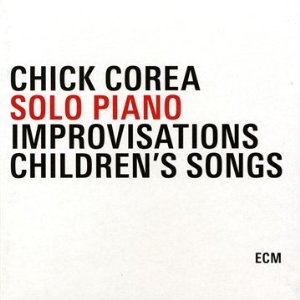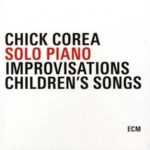
ECM
Around the time Chick Corea recorded his acclaimed two-volume set of piano improvisations for Manfred Eicher’s ECM label in 1971, he was the last guy you would have expected to dive headfirst into a solo acoustic project. As a core architect for Miles Davis’s electric period, he played a chief role in the then-blasphemous act of introducing the likes of oscillation, distortion and ring modulation to the language of jazz piano through the use of such electronic keyboards as the Moog and the Fender Rhodes on such groundbreaking albums as 1969’s In A Silent Way and 1970’s Bitches Brew.
Meanwhile, right around the time of these ECM recordings, Chick was making even rowdier waves amidst the stuffy shirted establishment of his craft by helping form the avant-garde group Circle alongside fellow Davis alum bassist Dave Holland, drummer Barry Altschul and master free jazz reedist Anthony Braxton, where he would defy the use of the baby grand by playing the strings inside of the instrument. And not even a year later, Corea was fully immersed in the controversial fusion era of the 70s with his group Return to Forever, joining the likes of such fellow members of the original Miles Davis electric group like guitarist John McLaughlin, keyboardist Joe Zawinul and drummer Tony Williams in amplifying the sounds of post-bop improvisation for the AOR crowd.
So, given Chick’s penchant for shaking the very foundation of this otherwise scholarly strain of American music to its deepest core, the recording of Piano Improvisations Vol. 1 and Vol. 2 came as quite an unexpected surprise to many of his critics. For one, the albums prominently showcased the Latino piano great’s hidden roots in the classical works of Ravel, Debussy and Chopin. These titles also mark the first solo piano material to be released by a member of his generation of players, beating out the likes of such fellow sonic sibyls of the day as Keith Jarrett, McCoy Tyner and Herbie Hancock. This comprehensive box set gathers together both volumes of Piano Improvisations, which feature early, off-the-cuff versions of such key Corea classics as “Sea Journey” (here titled “Song for Sally”), “Ballad for Anna” and “Sometime Ago” as well as interpretations of Thelonius Monk’s “Trinkle Tinkle” and former bandmate Wayne Shorter’s “Masqualero”. Also included in this set is Chick’s third solo piano album for ECM, 1983’s Children’s Songs, with the pianist describes in the set’s liner notes as an improvisational homage to kids and “their wide-eyed look of wonder at all that surrounds them.”
There are certainly meters and rhythms within these solo piano works that, if played through his souped-up electric piano, would have sounded right at home onstage with Miles at the Fillmore East. But being able to once again revisit these recordings and hear this unheralded master of the piano do his thing in a completely pure and unfiltered setting whilst in the thick of his most fertile creative period as an electric artist makes this beautifully simple box set a must-own.



No Comments comments associated with this post